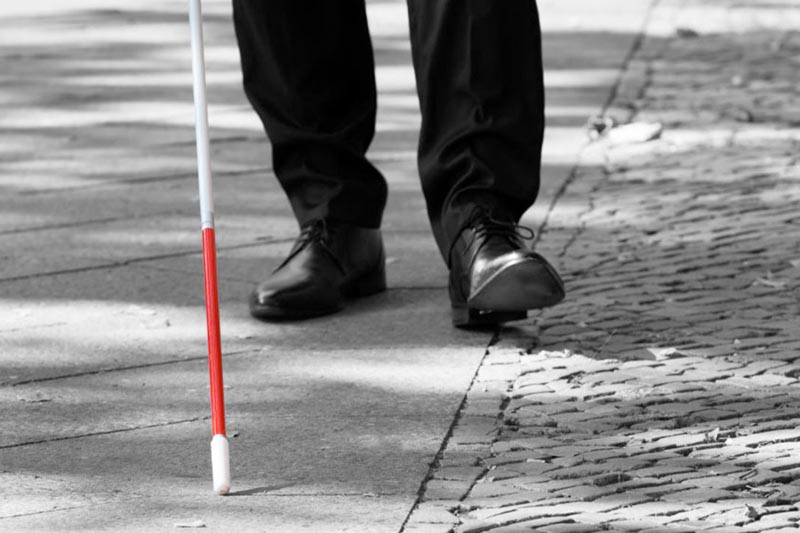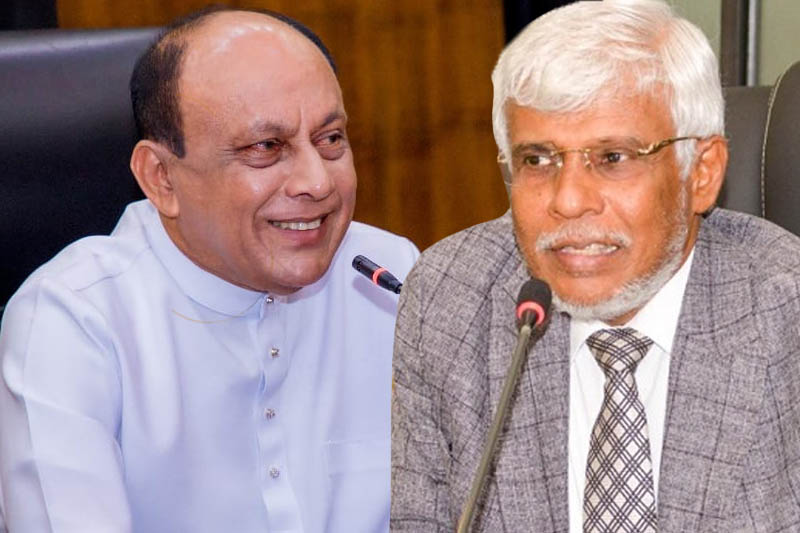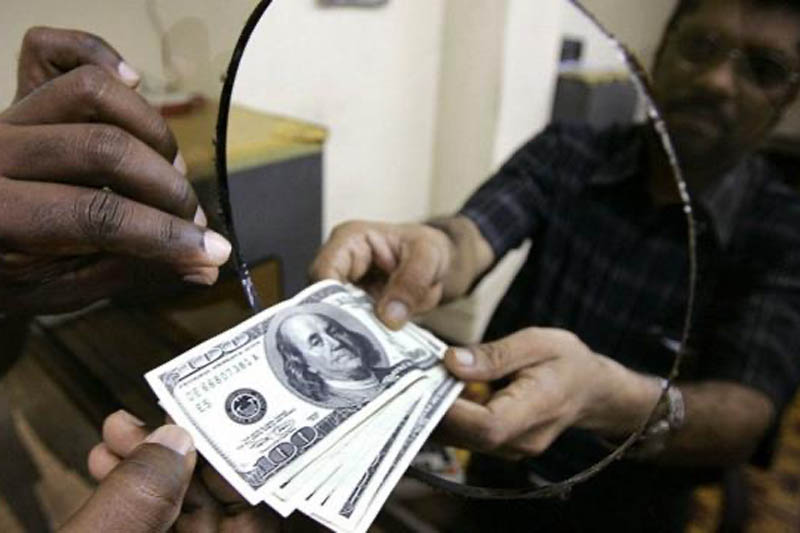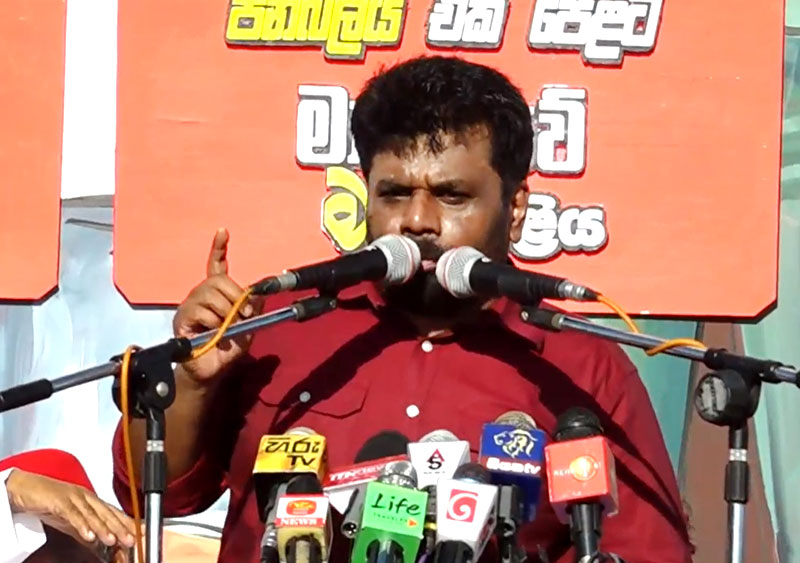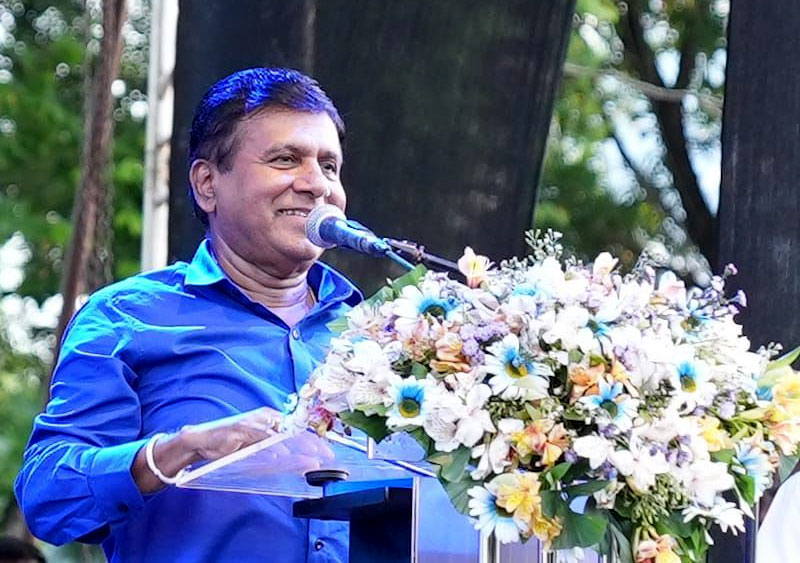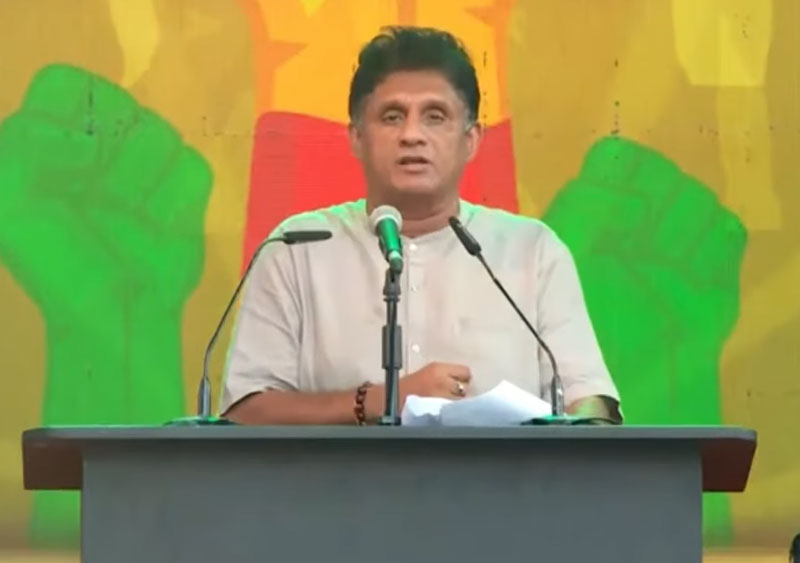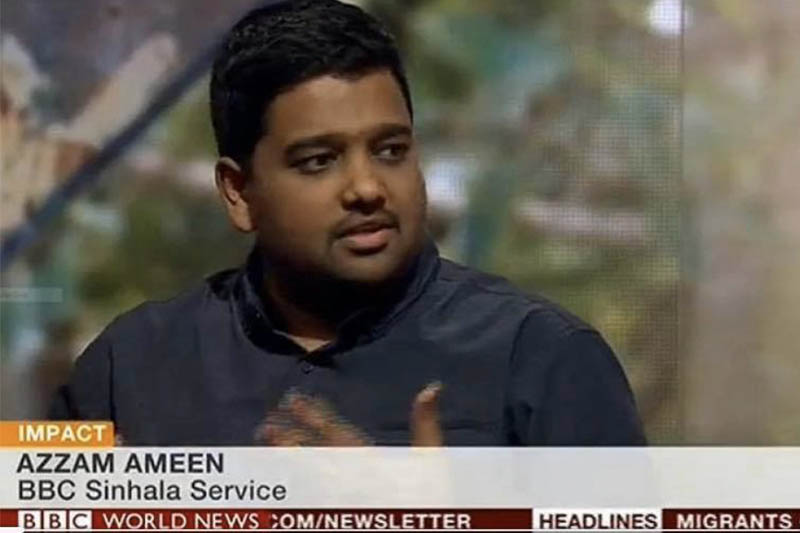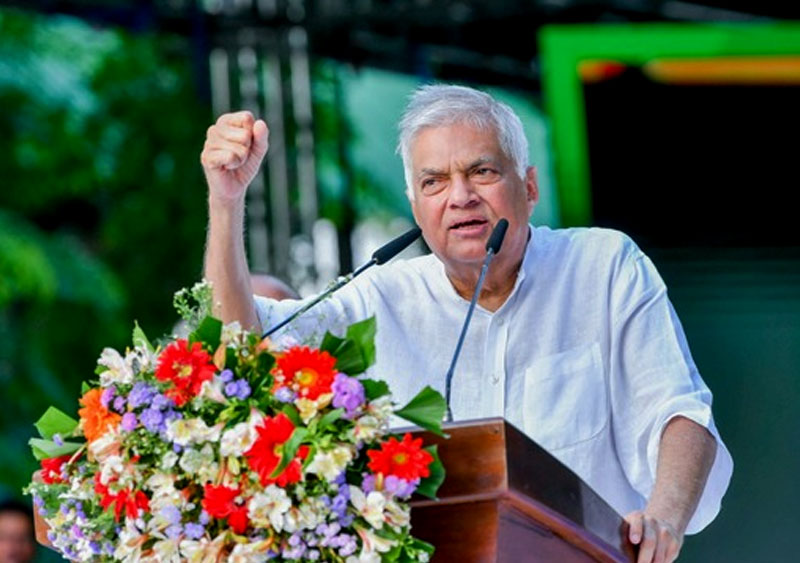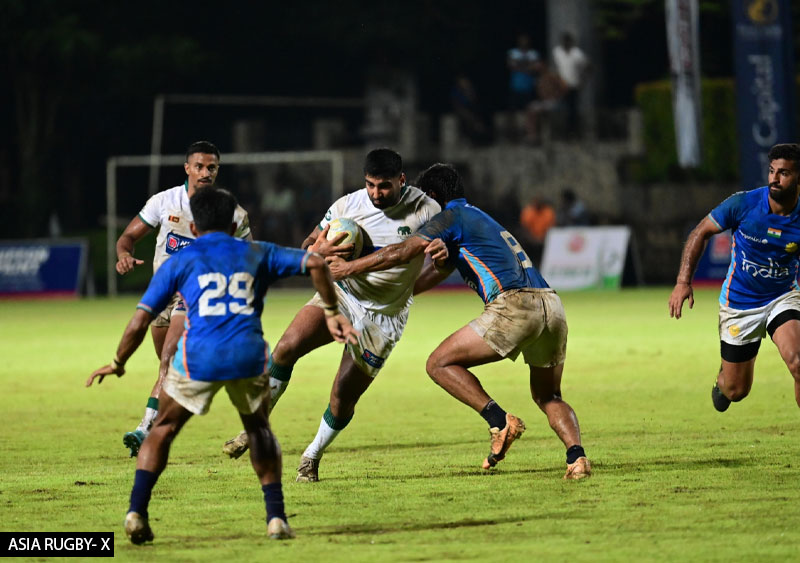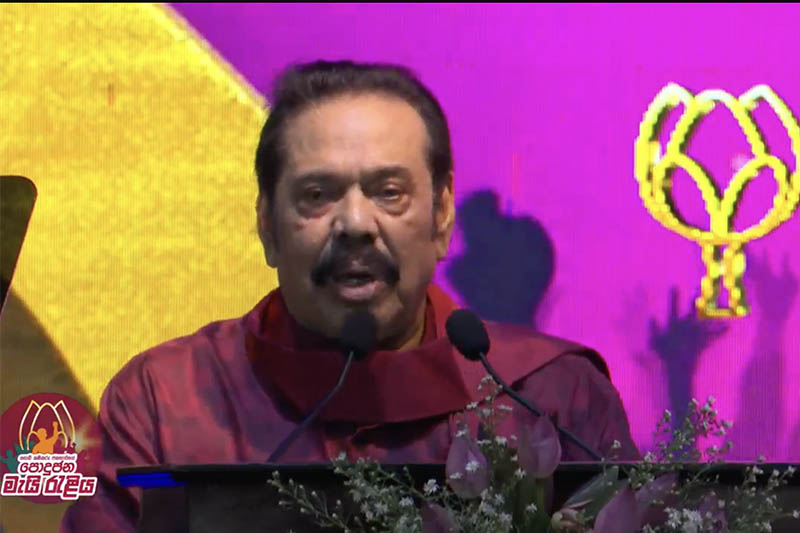The Human Rights Commission of Sri Lanka (HRCSL) has raised several concerns with justice minister Wijeyadasa Rajapakshe over the draft bill for the protection of the rights of persons with disabilities.
In its observations and recommendations sent on 21 September, the HRCSL had made five general recommendations
They are:
1. The standard of ‘reasonable accommodation’ should be more comprehensively integrated into the provisions of the bill that set out the state’s obligations.
2. The notion that women and children with disabilities face ‘multiple’ or ‘intersectional’ discrimination should be comprehensively integrated into the bill, including a specific commitment that state measures to protect, promote, and fulfill the rights of persons with disabilities would be gender and age sensitive.
3. A meaningful consultation with the HRCSL should be held to discuss the precise nature and scope of the commission’s role as an independent monitoring mechanism as contemplated by the bill.
4. The composition, appointment process, and powers of the National Council for Persons with Disabilities should be reviewed to ensure greater independence as well as respect for the fundamental rights of the people enshrined in the constitution.
5. The line ministry under which the proposed National Council for Persons with Disabilities should be the Ministry of Justice.
Also, the HRCSL has made detailed observations and recommendations on the specific provisions of the draft bill.
Clause 3
1. While many of the elements of the Convention, including non-discrimination on the grounds of disability, have been included in this Clause, the Clause does not adequately refer to the standards of reasonable accommodation and affirmative action, Such reference would strengthen this Clause and bring it in line with Article 5 of the Convention. It is also noted that Article 12(4) of the Sri Lankan Constitution clarifies that the rights to equality and nondiscrimination does not prevent the state from enacting special legislation 'for the advancement of...disabled persons'. Accordingly, the standards of reasonable accommodation and affirmative action are compatible with Sri Lanka's Constitution.
2. Moreover, Clause 3(3) can be further strengthened by the inclusion of the obligation to introduce measures that enable persons with disabilities to control their own financial affairs and to have equal access to bank loans, mortgages, and other forms of financial credit in line with Article 12 of the Convention.
3. Clause 3 of the Bill should contain clear references to the standards of reasonable accommodation and affirmative action and set out the obligations that flow from these standards in line with Article 5 of the Convention. It is further recommended that Clause
3(3) of the Bill be strengthened to ensure persons with disabilities are enabled to manage their financial affairs and to access financial credit.
Clause 5
4. This Clause can be further strengthened to include specific obligations found in Article 13 of the Convention. Such obligations include the obligation to provide procedural and age appropriate accommodations to persons with disabilities to obtain access to justice, and to provide training for those working in the field of administration of justice, including police and prison staff.
5. Clause 5 of the Bill should be strengthened to include reasonable accommodation ofpersons with disabilities and training for persons working in the field of administration of justice.
Clause 6
6. Similar to the gap in Clause 5 of the Bill, Clause 6 also omits specific reference to the standard of reasonable accommodation in line with Article 14 of the Convention.
7. Clause 6 of the Bill should make a clear reference to providing reasonable accommodation to persons with disabilities when guaranteeing the right to liberty and security of persons.
Clause 8
8. While Clause includes most elements of Article 16 of the Convention, which deals with the freedom from exploitation, violence, and abuse, it currently does not reference the obligation to ensure age and gender sensitive assistance to persons with disabilities who are vulnerable to such abuse. Moreover, the Clause does not set out specific obligations with respect to avoiding, recognising, and reporting incidents of abuse targeting persons with disabilities, as well as the promotion of the physical, cognitive, and psychological recovery, rehabilitation and reintegration of victims.
Clause 8 should be strengthened to specify that measures to combat exploitation, violence, and abuse targeting persons with disabilities include age and gender sensitive measures. It is further recommended that the Clause be enhanced to include obligations with respect to preventing and reporting incidents of abuse, and promoting recovery, rehabilitation, and reintegration.
Clause 9
10. This Clause contains most elements within Article 18 of the Convention. However, the Clause does not refer to obligations with respect to the liberty of movement, including the freedom to leave a country or enter one's own country.
11. Clause 9 of the Bill should be strengthened to ensure that persons with disabilities are not deprived of their liberty of movement on the basis of their disabilities.
Clause 10
12. This Clause on the rights of children with disabilities can be further strengthened by a clear general reference to the notion that in all matters concerning children with disabilities, the best interests of the child shall be a primary consideration. This commitment is in line with Article 7 of the Convention. Moreover, the Clause makes no reference to ensuring that children with disabilities have the right to express their views freely with due regard to their age and maturity.
13. Additionally, the Clause does not include the obligation set out in Article 23 of the Convention, i.e., to provide alternative care to a child with disabilities where the immediate family is unable to care for the child.
14. Clause 10 of the Bill should be revised to include a general reference to the best interests of the child' standard, a recognition of the right of children with disabilities to express their views freely, and an obligation to provide alternative care to a child with disabilities where the immediate family is unable to care for the child.
Clause l2
15. This Clause can be further strengthened by placing an obligation on all authorities to make available facilities such as Braille documents and signage in public buildings, to ensure adequate training to relevant stakeholders on accessibility issues, and to provide live assistance and intermediaries, including guides, readers, and new technologies of interpretation. Such obligations are in line with Article 9 of the Convention.
L6. Clause 12 of the Bill should be further strengthened to include specific obligations with respect to accessibility found in Article 9 of the Convention.
Clause 14
17. This Clause is compatible with Article 19 of the Convention.
18. It is, however, recommended that the term 'cornered' be reconsidered, and replaced with the terms 6isolated or segregated' to be in line with Article 19.
Clause 13
19. This Clause does not contain specific reference to the obligation to facilitate the personal mobility of persons with disabilities 'in the manner and at the time of their choice' in line with Article 20 of the Convention.
20. Clause 13 of the Bill should be strengthened to enhance the choice of persons with disabilities in how and when they can access affordable options for personal mobility.
Clause 15
21. This Clause on women with disabilities does not specifically reference the notion that women and girls face 'multiple discrimination', where they face discrimination both on the grounds of sex and disability.
22. Clause 15 of the Bill should clearly refer to ‘girls' in addition to 'women and refer to the notion of 'multiple discrimination'.
Clause 22
23. This Clause does not make specific reference to the obligation to require health professionals to provide care of the same quality to persons with disabilities as to others, including on the basis of free and informed consent in terms of Article 25 of the Convention. The state is accordingly expected to raise awareness of the human rights, dignity, autonomy and needs of persons with disabilities through training and framing ethical standards for public and private health care.
24. Clause 22 of the Bill should include the obligation to set standards for and provide training to public and health professionals with a view to providing the same quality care to persons with disabilities as to others.
Clause 23
25. This Clause does not refer to the concept of 'habilitation', which is specifically found in Article 26 of the Convention, and which is distinct from 'rehabilitation'. The term 'habilitation' generally refers to the process of helping persons with disabilities attain, keep, or improve skills and functioning for daily living.
26. Clause 23 of the Bill should recognise the right of persons with disabilities to access means of rehabilitation in addition to rehabilitation.
Clause 25
27. This Clause does not specifically refer to the obligation found in Article 27 of the Convention to ensure that persons with disabilities are not held in slavery or in servitude, and are protected, on an equal basis with others, from forced or compulsory labour.
28. Clause 25 of the Bill should include a reference to the obligation to ensure that persons with disabilities are not held in slavery or in servitude, and are protected on an equal basis with others, from forced or compulsory labour.
Clause 27
29, This Clause sets out the composition and appointment process with respect to the National Council for Persons with Disabilities. It is observed that, apart from the thirteen ex-officio members of the Council (who include the relevant Minister and the secretaries to several relevant ministries) the twelve other members will be appointed by the President in consultation with the Secretary to the relevant Ministry. This appointment process does not include adequate safeguards with respect to ensuring the independence of the said appointees.
It is recommended that the composition and appointment process concerning the National with Disabilities be revisited to ensure greater political independence.
Clause 42
31. While the Commission acknowledges the important role to be played by the National Council for Persons with Disabilities, it observes that the Council's role in terms of awareness raising could be strengthened in line with Article 8 of the Convention.
32. Moreover, we noted that clause 42(c) does not include the term ‘inhuman' in the phrase 'torture, cruel and degrading treatment'.
33. Clause a2(y) of the Bill should be further enhanced to include more specific obligations with respect to awareness-raising, combatting stereotypes, prejudices and harmful practices, and promoting positive perceptions and greater social awareness towards persons with disabilities, including in the media. Furthermore, clause 42(c) should include the term ‘inhuman’.
Clauses 44 and 45
34. Clause s 44 and 45 vest broad powers in the National Council for Persons with Disabilities to authorise entering, searching, or inspecting premises, and interrogating persons. It is noted that in the absence of adequate safeguards with respect to ensuring the independence of this Council, vesting such broad powers in such Council is inadvisable. The arbitrary exercise of such powers may result in the violation of the fundamental rights of persons, including the fundamental right to equal protection of the law, guaranteed by Article 12(l) of the Constitution.
35. It is recommended that Clauses 44 and 45 be revisited and the powers to authorize entering, searching, and inspecting premises, and interrogating persons be vested only in a politically independent body subject to judicial oversight.
Clause 67
36. This Clause aims to fulfill certain obligations found in Article 33 of the Convention, i.e., with respect to establishing an independent mechanism to monitor the implementation of the Convention.
It is observed that the statutory role of the Human Rights Commission of Sri Lanka as an independent monitoring mechanism should be defined and determined following meaningful consultation with the Commission on its future role. Such a monitoring mechanism should be consistent with the provisions of the Human Rights of Sri Lanka Act.
It is noted that, where the fundamental rights of persons with disabilities have been allegedly violated, the Commission already has the power to investigate such violations in terms of section 10(a) of the Human Rights Commission of Sri Lanka Act. Concurrently, Clause 67(2) of the Bill contemplates situations in which the National Council for Persons with Disabilities can refer matters to the Commission for investigation. It is imperative that the role of the Commission as contemplated by the Bill is compatible with the Commission's existing mandate under the Human Rights Commission of Sri Lanka Act. This concern is particularly relevant given how the current Bill sets out the Council's composition and appointment process.
39. It is recommended that Clause 67 of the Bill be revisited in consultation with the Human Rights Commission of Sri Lanka to ensure full compatibility with the Commission's mandate under the Human Rights Commission of Sri Lanka Act.
Clause 78
40. The interpretation clause in the Bill does not contain a specific definition for 'language' as found in Article 2 of the Convention. Article 2 defines 'language' to include 'spoken and signed languages and other forms of non-spoken languages'. The Bill instead includes elements of the Convention's definition for 'language' within its definition for 'communication'.
41. Moreover, Clause 78 currently lacks any reference to the definition of 'reasonable accommodation'. This standard is defined in the Convention as 'necessary and appropriate modification and adjustments not imposing a disproportionate or undue burden, where needed in a particular case, to ensure to persons with disabilities the enjoyment or exercise on an equal basis with others of all human rights and fundamental freedoms.'
42. It is recommended that separate definitions for 'language' and 'reasonable accommodation' in line with the Convention be introduced into Clause 78 of the Bill.
Other Substantive Gaps in the Bill
43. It is noted that the Bill does not include a reference to the right to life of persons with disabilities in line with Article 10 of the Convention. Although the right to life is not expressly articulated in the Sri Lankan Constitution, the Supreme Court has recognised the fundamental right to life in its jurisprudence, and any express reference to such right would not be incompatible with such jurisprudence.
44. It is recommended that the Bill include a specific provision on the right to life of all persons with disabilities.
45. It is noted that the right set out in Article 17 of the Convention, i.e., that every person with disabilities has a right to respect for his or her physical and mental integrity on an equal basis with others, is not recognised in the Bill. The articulation of such a right is important to ensuring the dignity of persons with disabilities.
46. It is recommended that the right to respect for one's physical and mental integrity be specifically included in the Bill.
47. It is noted that the right to respect for privacy set out in Article 22 of the Convention is not explicitly recognised in the Bill. Such right includes the right to be free from arbitrary or unlawful interference with the privacy of persons with disabilities and maintaining the confidentiality of personal, health and rehabilitation information of persons with disabilities.
48. The right to respect for the privacy of persons with disabilities should be recognised in the Bill.
49. It is observed that the right to an adequate standard of living and social protection recognized in Article 28 of the Convention is not found in the Bill.
50. The right to an adequate standard of living and social protection should be recognized in the Bill in line with the standard of progressive realisation.

